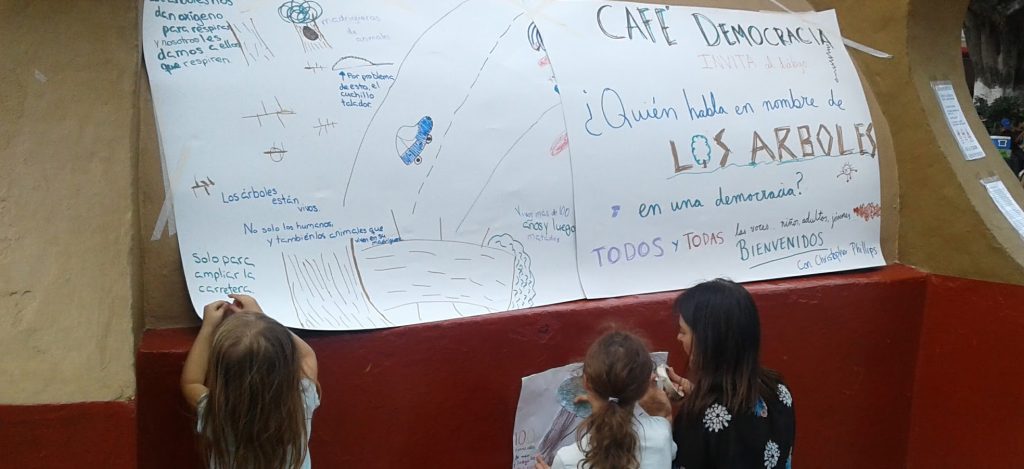One of our longest-running Socrates Cafes is organized and facilitated by Richard Bernstein, MD, It is held monthly at the Ethical Culture Society of Bergen County, New Jersey.
One of the things I’ve long enjoyed about Socrates Cafe — now in its 22nd year — is that I learn so much from other participants and facilitators. Rich is one of those rare souls from whom I learn still more about Socrates Cafe itself — its potential, and promise, and process.
In this essay of Rich’s, Lessons from Socrates Cafe, which has a timeless quality to it, he places emphasis on the process embedded within a Socrates Cafe inquiry; he writes: “the process involves what Plato and others call dialectic, that is, discovering and testing knowledge through questions and responses from the other attendees.
Rich, who kindly was a guest on our podcast, goes on to note, “I believe what we’re all actually trying to do is get better at critically thinking about a subject. This is the generic goal underlying Socrates Cafes.”
Regardless of the question under exploration, it “is often pulled into as many directions as there are discussants.” As Rich notes. “This is the beauty of diving and exploring new questions …or ancient questions. Everyone comes to Socrates with a unique set of life experiences and perspectives to analyze the question and to give examples and counter-examples that the question provokes.”
Rich closes with this essential insight:
Even without a final answer to our initial question, the to and fro of the discussion, the clarification and respectful challenges lead us all along a path to mining a topic, peeling back more layers of the onion and having fun in the process. It is also important for us, as members of society, to respectfully challenge our politicians and school boards and others in positions of authority so that their decisions will more likely lead to better policies and outcomes for our community and nation.
Socrates Café provides a toolkit of useful techniques for developing critical thinking and for avoiding common fallacies. If we strive to make the world a better place and want to improve the quality of decision making in our democracy, we need more venues like Socrates Cafes. We should encourage our children, grandchildren and friends to join similar discussion groups that exist around the US and many other countries.
One of the reasons I have gone back to this essay or Rich’s again and again over the years is because he has helped me better appreciate, and indeed more acutely understand, what Socrates Cafe is and can be all about.
Little wonder then, that after 22 years, I still enjoy ‘Socratizing’ so much — and just like Rich says, not only is it an unending learning experience, potentially transformative for both self and society, it’s fun.

Photo of Richard Berstein, MD, organizer of the long-time Socrates Cafe of the Ethical Culture Society of Bergen County

